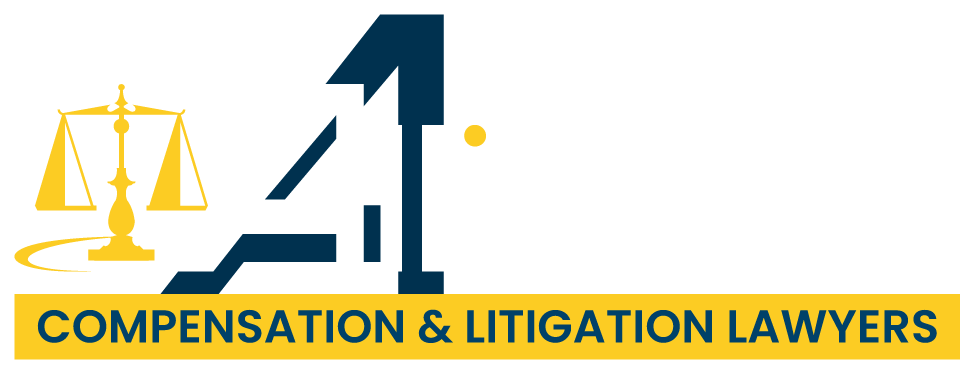What is Provisional Liability?
When an insurer assumes provisional liability for an injured worker, it commences payments to the worker for lost income and medical expenses, even when the insurer has not made a final decision about the insurance claim.
As an injured worker, you can apply for provisional liability payments immediately after your injury as the first step in your claim for compensation. Payments usually begin very shortly after this initial application to the insurer (usually within 7 days — find out more about time frames below).
These early payments reflect that the insurer has assumed liability for the period of time leading up to its decision about the claim (i.e. on a ‘provisional’ basis). They are therefore distinct from workers compensation payments you receive after the insurer formally decides it is liable for your injury.
The rationale for provisional liability payments is to provide the insurer with sufficient time to make a comprehensive and fair assessment of the worker’s claim while also providing necessary and complete medical and financial support to the injured worker.
For a comprehensive overview of the workers compensation NSW scheme and where provisional liability steps in, make sure you visit our Comprehensive Guide to Workers Compensation in NSW.
Provisional payments available under the Workers Compensation NSW Scheme
You can access provisional liability payments after you first notify the insurer of an injury. Most insurers allow their clients to notify them via an online form on their website, or by phone, email, or post. You will also be required to provide basic documentation proving that you are injured.
If the insurer accepts the notification and supporting documents, it must by law begin provisional liability support to its injured client within 7 days. An injured worker can then access two kinds of provisional payments:
Weekly provisional payments
Weekly provisional payments for up to 12 continuous weeks, compensating the injured worker for their loss of income due to recovery (see sections 267-269 of the Workplace Injury and Workers Compensation Act 1998).
You can still receive weekly payments if you return to work part-time or in a role with a different pay grade – the provisional payments will simply compensate you for approximately the difference between your new and original weekly income. The maximum weekly payment a worker can receive in provisional payments and, later on, workers compensation payments, changes twice a year according to indexation, i.e. the payment amounts are scaled to average values of workers’ wages.
In some cases, the insurer is entitled to delay or refuse to pay provisional liability contributions on the basis of a ‘reasonable excuse’ under workers compensation guidelines (see “Reasonable Excuse’: when can insurers delay provisional liability payments?’). If the insurer does decide to refuse or delay payments, it must inform you that it disputes your notification or compensation claim.
Provisional payments to cover medical expenses and treatments
Workers are entitled to a maximum of $10,000 in total provisional payments for medical and treatment expenses. If your medical expenses cost more than this amount, you will need to wait until the insurer makes the final decision about your compensation claim before receiving medical expenses compensation exceeding the already accumulated $10,000 worth of payments (see sections 279-280 of the 1998 Act).
Although the insurer can legally refuse the worker provisional weekly payments on the basis of a ‘reasonable excuse’, the insurer must pay for medical expenses and treatments on a provisional basis. Note however that not every treatment is eligible for payment — it must qualify as ‘reasonably necessary’ and be approved by the Workers Compensation NSW guidelines (see 4.1 to 4.3).
If you would like to learn more about Provisional Liability and Workers Compensation payouts and calculations, make sure you visit our Workers Compensation Payout Guide NSW.
Obligations and time limits for provisional liability
To receive provisional liability payments, you must inform your insurer of your injury within less than two months after the injury occurs. The insurer must then provide you with weekly payments within 7 days of receiving this notification.
If you submit to the insurer your complete compensation claim as the first piece of correspondence about your injury, this claim will operate as the original notification for the purpose of receiving provisional payments.
In addition to the initial 7-day commencement timeframe, workers compensation NSW legislation and guidelines mandate that the worker and the insurer must meet other time-sensitive obligations for payments to continue.
Insurer’s responsibilities once provisional payments begin
An insurer that has decided to accept provisional liability for a workplace injury must as soon as possible write to you to confirm the following:
- That the insurer has started to pay you provisional liability support;
- The number of weeks for which you will receive payments (the maximum being 12);
- Details of your ‘Injury management plan’ (its scheme to assist you to recover from the injury); and
- Details about how you can access other entitlements in the Workers Compensation NSW scheme, especially how you can submit a claim for compensation for the total cost and impact of your injury.
The letter should also include the following:
- The amount you will receive each week, and how the insurer arrived at this figure;
- Whether the employer or the insurer will pay;
- The amount you were earning each week before the injury;
- How you can dispute the amount paid to you or submit a complaint if you do not receive payment; and
- Any additional information you need to provide the insurer to continue to receive payments.
Worker’s responsibilities once provisional payments begin
If you receive provisional liability payments, you must respond within 7 days to the insurer’s requests for:
- Medical certification to prove you are incapable of work (also known as a ‘Certificate of Capacity’); and
- Your signed consent for medical and treatment providers to share information about your injury with the insurer directly.
Your insurer is entitled to cancel weekly payments if you do not comply with these requests.
What if the insurer doesn’t accept provisional liability within 7 days?
In some cases, an insurer may simply fail to commence provisional payments within 7 days or offer a ‘reasonable excuse’ about why it refuses to pay. In such cases, you are entitled to access several resources and pathways to resolve or dispute the failure or refusal.
1. Request an internal review of the decision to refuse provisional liability
You can request the insurer to internally review its decision, that is, reconsider all the materials for and reasoning behind the refusal to pay against the insurer’s own processes, rules, and standards. You can either directly contact the insurer in writing or seek the help of the Independent Review Office (‘IRO’), a government body who can assist you by contacting the insurer on your behalf.
Injured workers also have access to a downloadable NSW government review form that they can send directly to the insurer to request an internal review.
2. Request the assistance of the Personal Injury Commission
The Personal Injury Commission can conduct an external review of the insurer’s decision. You are entitled to proceed directly to this avenue of dispute if you are dissatisfied with any decisions your insurer makes about your entitlements.
The Commission will independently assess the insurer’s decision (rather than communicate with the insurer on your behalf) based on your application and all the materials you have provided the insurer, along with the insurer’s own processes and rules. If the Commission finds that the insurer’s decision was incorrect, it can make orders to change that decision or influence the insurer to reconsider your application based on fairer reasoning and processes.
At this stage of resolving the dispute, you should seriously consider legal representation. Applications for review involve completing forms that require legal interpretation, especially where the presentation and framing of the dispute is involved.
Legal assistance can also help significantly with the chances of success of your dispute — our skilled Workers Compensation lawyers can help identify and express key issues regarding the insurer’s decision so that they connect your case with other disputed but successful personal injury cases.
‘Reasonable Excuse’: when can insurers delay provisional liability payments?
Insurers are legally permitted to refuse or delay provisional liability payments where it has a ‘reasonable excuse’ to do so. These excuses are listed in Table 2.1 of the Workers Compensation NSW Guidelines and include circumstances where:
| Excuse | Scenarios |
| There is insufficient information to prove the injury | Not enough documentary proof or no medical certification that you the claimant suffered an injury |
| There is insufficient proof that the claimant was a worker | – No verification of worker status from the claimant – The employer confirms the claimant is not a worker – No proof of the claimant’s status as a worker through other sources, e.g. payroll number, payslips or bank statements showing regular payments, or a contract of employment or services |
| The claimant cannot be contacted | You do not respond to one written communication and two phone calls from the insurer made more than two days apart |
| The claimant refuses to share key documents or information | You will not consent to providing personal details and information about the injury that is crucial to the insurer’s decision to make provisional payments |
| The injury is not related to work | – NSW workers compensation law does not, or strongly indicates that it does not, cover your injury – The employer provides the insurer with medical information showing that your injury is not related to work, e.g. that the condition already existed or did not arise during work hours |
| The injury or claim does not require payments | The insurer finds that you are not suffering from incapacity or loss of earnings as a result of the injury |
| The claimant informs the employer of injury after two months | You notify your employer of your injury more than two months after the time of the injury occurring |
In the above instances, your conduct as the claimant or the insurer’s findings can lead to the delay or cancellation of provisional weekly payments. To continue to receive provisional liability coverage, it is advisable to correspond with your insurer in a timely manner and provide appropriate certifications and information when requested.
When will provisional payments stop?
As an injured worker you can rest assured that pending the insurer’s determination about your compensation claim, you will continue to receive provisional weekly payments and compensation for medical expenses. Until the insurer makes its final decision about your claim, payments should only stop when you return to work as normal or no longer require treatment before the time of the insurer’s decision.
The insurer may arrive at their final decision about your claim before the available 12-week period of payments ends. Once the insurer makes its decision, your provisional payments will cease, and the insurer will either begin or refuse weekly and lump sum payments as a part of official compensation for the personal injury claim.
The other instances in which payments may stop are those giving rise to a ‘reasonable excuse’ to delay or cease weekly provisional payments as discussed above.
How can Alliance Compensation & Litigation Lawyers help?
Accessing provisional liability payments can help significantly to reduce financial and psychological stress in the immediate aftermath of a workplace injury.
Alliance Compensation & Litigation Lawyers are focused on fighting for workers’ entitlements and supporting their recovery. We are enthusiastic about helping clients receive the most they can when it comes to provisional liability payments and compensation claims.
If you have experienced a workplace injury and wish to claim workers compensation in NSW or dispute a refusal of payment by an insurer, we invite you to book a no obligation consultation with us.
Call us on 02 8764 1776 or email us at refer@alliancecomplawyers.com.au.


















